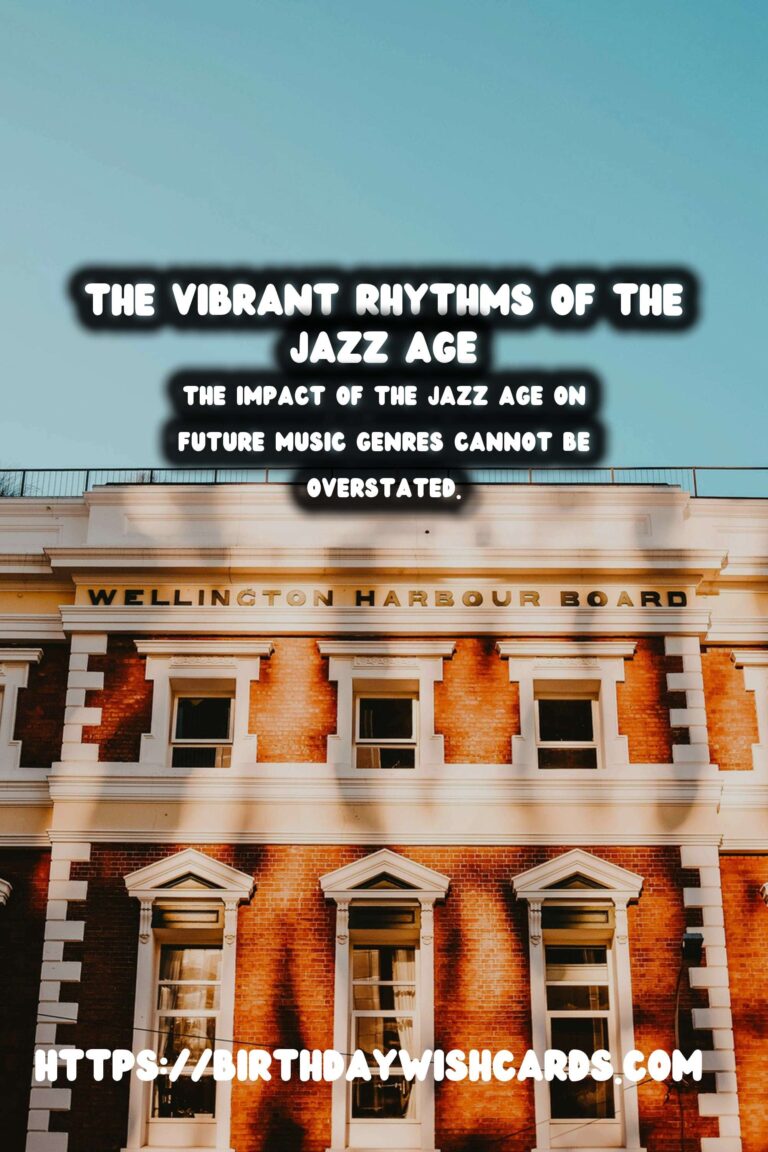
During the Roaring Twenties, America experienced profound cultural transformations that were heavily influenced by the intoxicating rhythms and improvisational flair of jazz music. Often referred to as The Jazz Age, this era marked a pivotal point in American music, shaping social narratives and influencing genres for generations.
The Rise of Jazz: A Cultural Revolution
Rooted deeply in African American communities, jazz music emerged as a rebellious response to traditional music styles. With its roots in Blues and Ragtime, jazz delivered an innovative soundscape characterized by syncopated rhythms, the creative use of blue notes, and improvisation. This music represented both a liberation from societal constraints and a celebration of creativity.
As the music spread northward, African American musicians sought opportunities in cities like Chicago and New York City, with Harlem becoming a cultural epicenter. The Harlem Renaissance bolstered the prominence of jazz, boosting the visibility of African American culture and fostering an environment where jazz could flourish.
Jazz Clubs and the Social Scene
During the Jazz Age, speakeasies and jazz clubs offered a sanctuary for music lovers and those seeking a lively, brazen respite from Prohibition’s austerity. Here, icons such as Louis Armstrong, Duke Ellington, and Bessie Smith dazzled audiences with their virtuosic performances. These venues became melting pots of ideas where rich dialogues formed across racial and social lines.
The allure of jazz transcended social barriers and captured the imagination of youthful, urban audiences. As the music matured, it influenced fashion, dance, and even literature, embedding itself into the fabric of everyday life.
Impact on Future Music Genres
The impact of The Jazz Age on future music genres cannot be overstated. Jazz laid the groundwork for the emergence of Big Band, Swing, and eventually Bebop. Its influence reached into rhythm and blues, rock ‘n’ roll, and more contemporary genres such as hip hop and funk. Artists continually draw upon jazz’s improvisational techniques and emotive depth for inspiration.
Moreover, jazz has facilitated cross-cultural exchanges, allowing artists globally to incorporate its elements into their music. This adaptability has contributed to jazz’s timelessness and ongoing relevance.
Legacy of The Jazz Age
Today, the legacy of The Jazz Age persists, exemplifying the enduring power of jazz to inspire change and bring people together. The era symbolizes a time when music was not just entertainment but a dynamic force for cultural dialogue and societal progress.
From the creation of new musical forms to breaking down racial barriers, The Jazz Age has left an indelible mark on American culture and music.
For those exploring the history of music, understanding the significance of The Jazz Age offers invaluable insights into how music can shape and reflect societal shifts.
During the Roaring Twenties, America experienced profound cultural transformations that were heavily influenced by the intoxicating rhythms and improvisational flair of jazz music. The impact of The Jazz Age on future music genres cannot be overstated. 
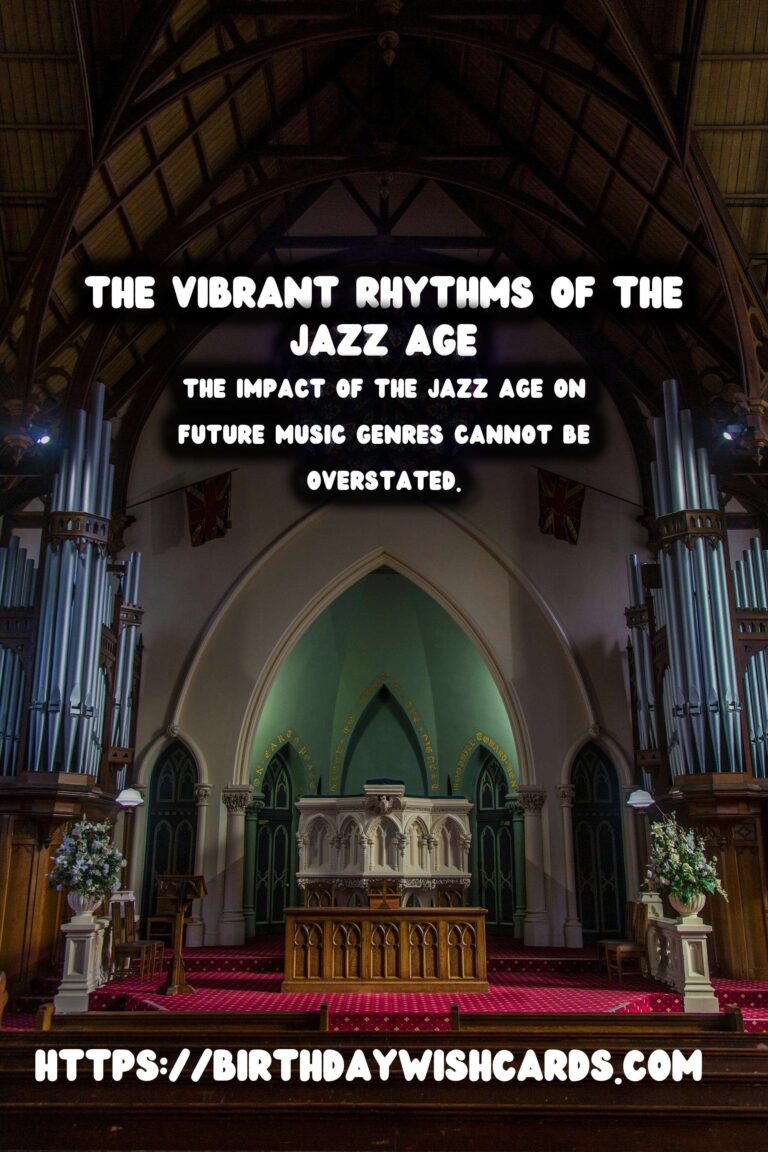
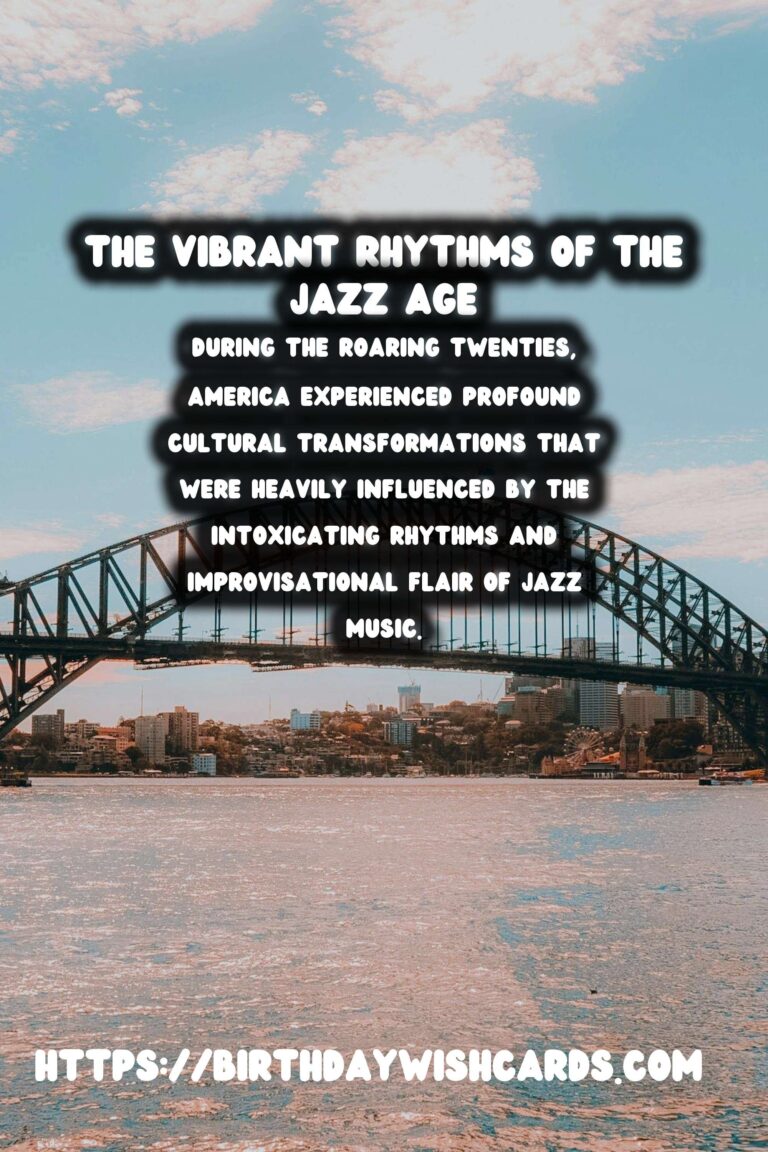
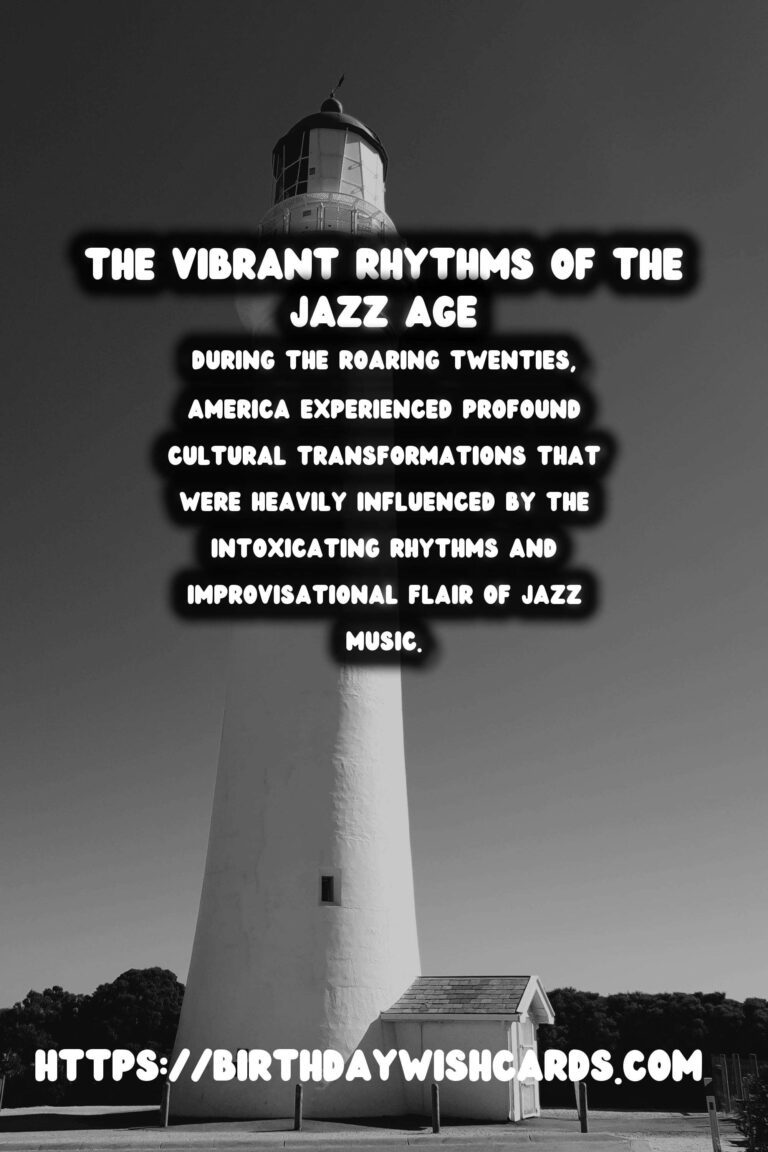


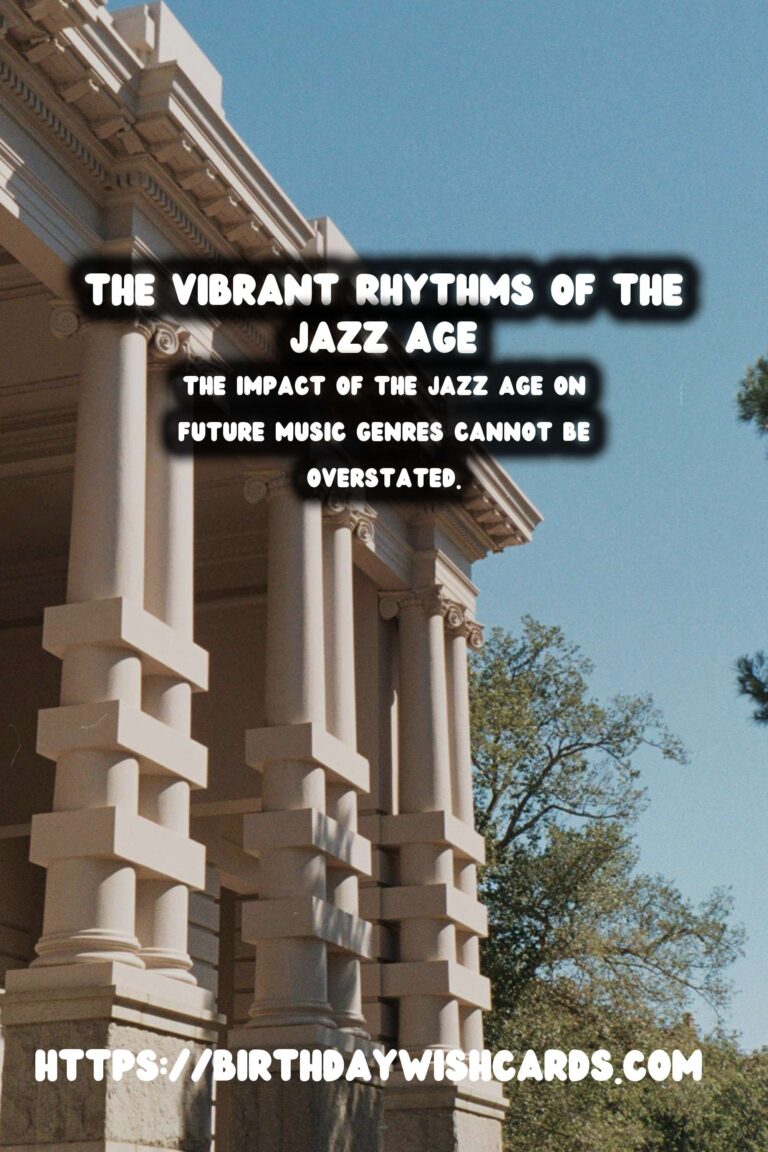



#JazzAge #AmericanMusic




